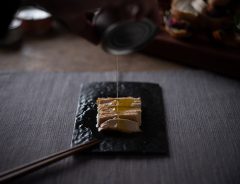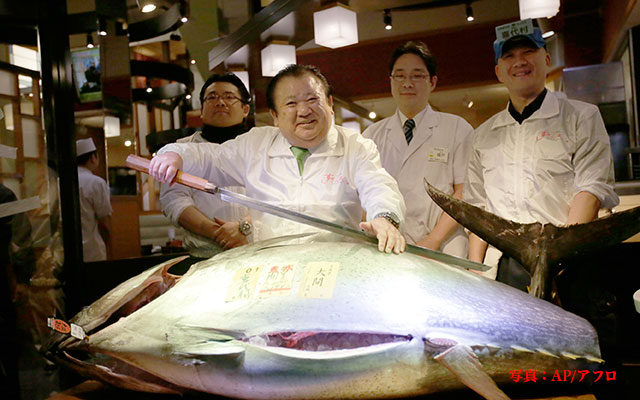- Source:
- @zanmai_man / @inabawataru / @_GHOST_CHASER / @reimei_dp / Ministry of Foreign Affairs
- Tags:
- Piracy / Pirate / Sushi / Sushizanmai / Tuna
Related Article
-

Too cute sushi scratching posts turns cats into purrfect sushi chefs
-

Luxury $50-A-Can “MAGURO-TORO BLACK LABEL” Tuna Restocked By Popular Demand
-

Cheap and Delicious: My All-Time Favorite Kaiten-Zushi restaurants in Japan
-

Some of the tasty sushi rolls you’ll find in Japanese convenience stores [Review]
-

Sushi Challenge with Ghibli-Inspired and King-Sized Creations
-

Yokohama sushi restaurant offers all-you-can-eat sushi for less than 2,000 yen



Armed piracy off the coast of Somalia has been a serious issue in the past few years. They attack and take over vessels using guns and rocket launchers. Their influence has even affected the global economy.
At it's worst, there have been around 300 incidents per year. However, that number had reduced to zero in the past few years.
Source: Ministry of Foreign Affairs (translation by grape)
So how did the numbers of piracy drop off the coast of Somalia, when the number of incidents were significantly higher than other parts of the world?
Kiyoshi Kimura, a guy that helped destroy piracy
Kiyoshi Kimura is the president of "Sushizanmai", a well-known Sushi restaurant chain in Japan. He was one of the major contributor to reducing piracy off the coast of Somalia.
There was a man who found out that pirates were doing what they were doing because they have no money or skills. This man then sourced the pirates some fishing vessels, gave them training, and networked them to fishery distribution network. Then the pirates disappeared. This man is no politician; he is the president of "Sushizanmai".
I think this picture is of Sushizanmai's Kimura, from the time when he was given a medal from the Djiboutian government. I'm surprised people didn't know about how he helped disarm the pirates off the coast of Somalia.
Kimura is well known in Japan for his "extravagant" performances, such as tuna filleting shows and purchasing the year's first tuna at a high price.
While he shows off in front of the public, according to some, he is an active president, listening to staff at restaurants and picking tunas at fishing ports.
This is midnight at Shimonoseki fishing port. President Kimura is looking at all the fish that have landed. The ones he bought might end up in a Sushizanmai restaurant near you.
How did the pirates disappear?
Coast of Somalia is actually a fishing area for catching yellowfin tunas, but because of the high number of piracy in the area, hardly any fishermen went near the area.
Knowing the issue, Kimura used his connections to get in touch with the pirates in person for some discussions.
"We don't do piracy because we want to"
What Kimura heard from the pirates was striking: they only became pirates because they have lost their homes due to civil war, and they needed to find a way to make a living.
So Kimura suggested to the pirates they should catch some tunas in the same ocean where they were attacking vessels, and make money that way. Kimura went out of his way to provide ships and skills required for tuna fishing. He also assisted in the process of them joining the IOTC (Indian Ocean Tuna Commission).
While his effort was not the only factor in eliminating piracy near Somalia, his peaceful efforts cannot be ignored.
Recognized by the government of Djibouti
Kimura's was awarded a medal by the government of Djibouti in 2013 for his efforts to help reduce piracy.
Kimura's approach helped take in the real voice of the pirates and create a win-win situation for many: for the people who felt they had no choice but to become a pirate, for restoring peace in the ocean; for the tuna fishing industry.
While we may not be able to rule out the efficacy of military force completely, this story suggests that many serious issues that the world has could be improved if we change our perspectives. Perhaps the same applies to the way we go about in our everyday life.
Maybe the Somalian pirates in their new career could apply to the Fisherman Call wake up service in Japan, which provides a real fisherman to wake you up in the morning. Or sell their hauls to a host club in Tokyo's red light district...
(Updated 7th March 2018)